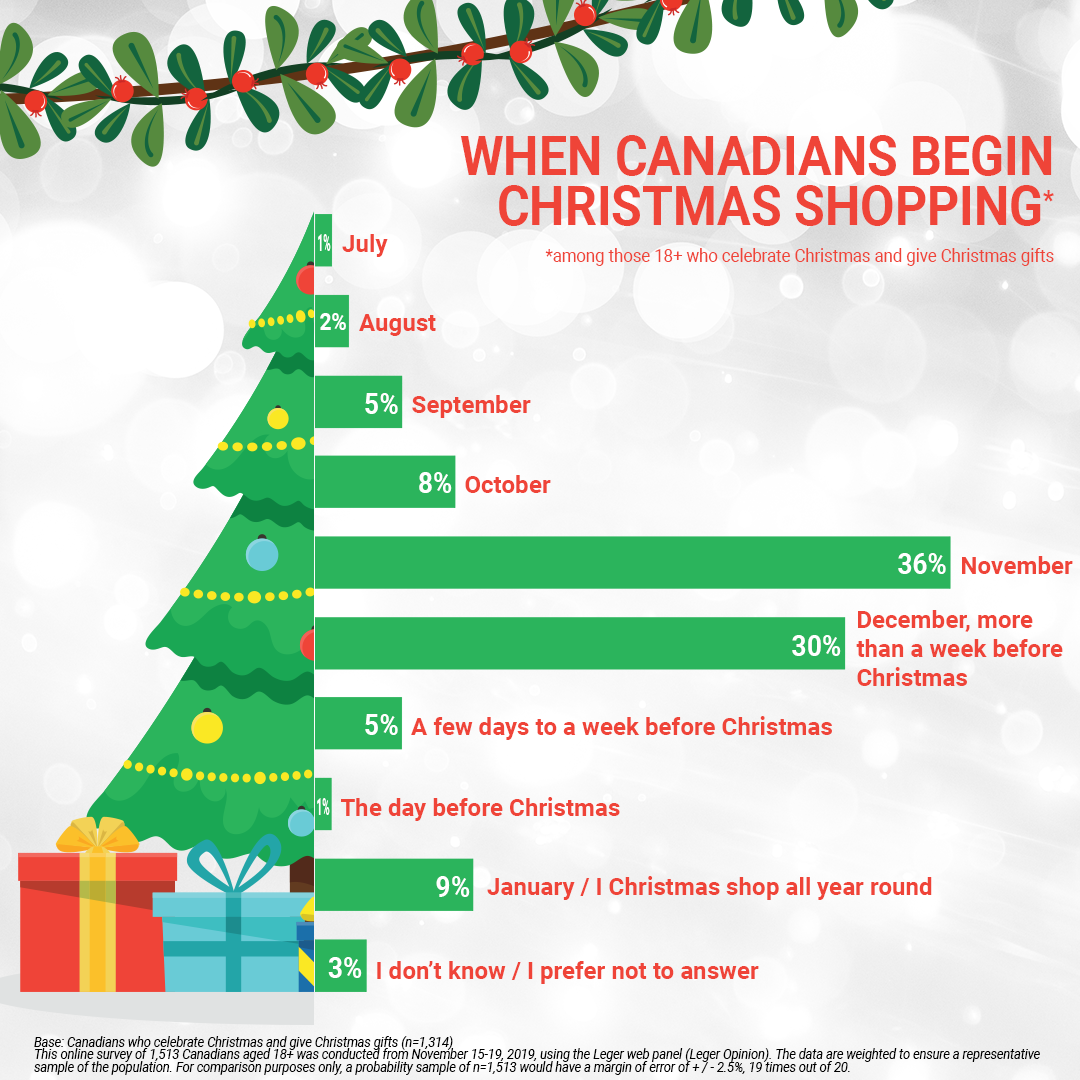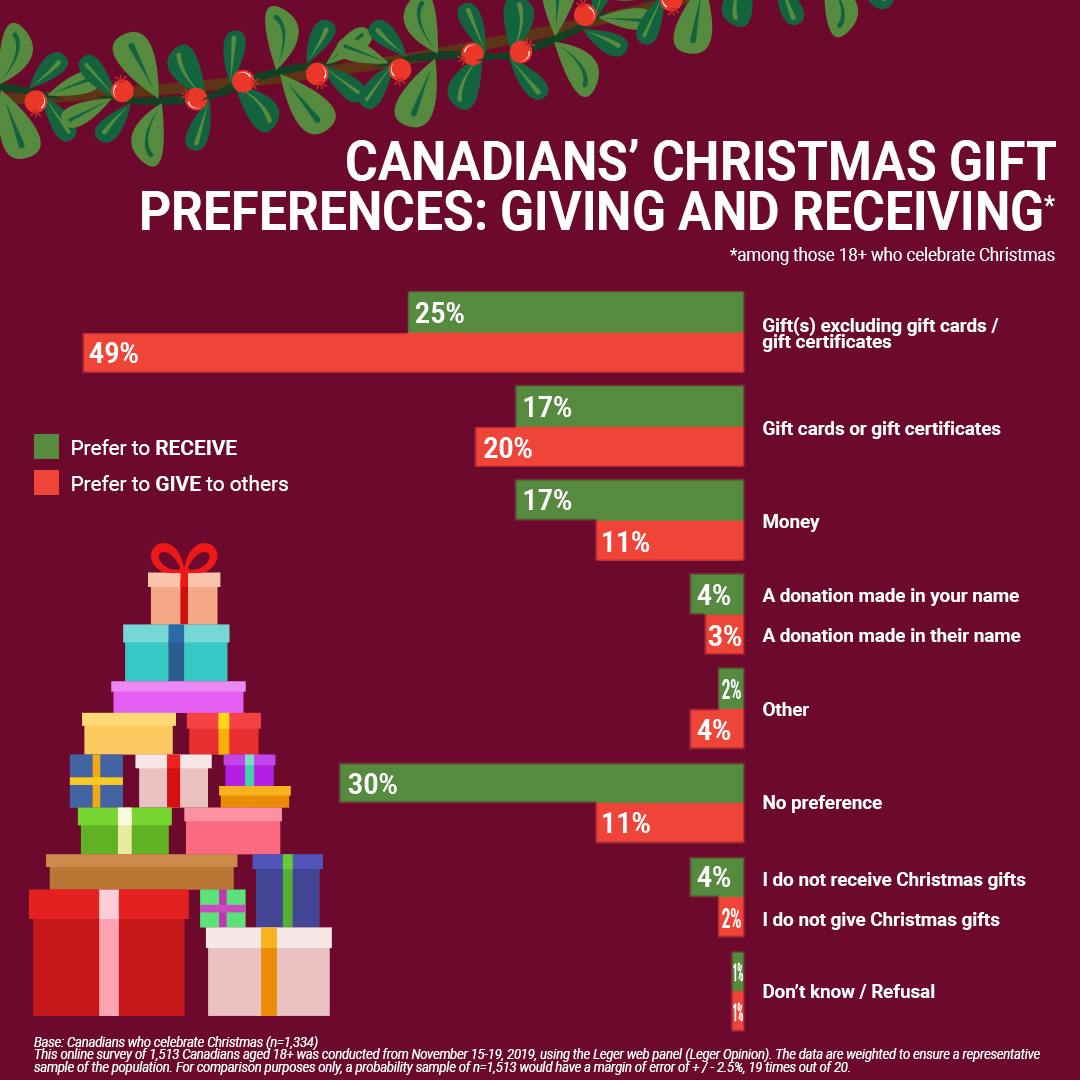Do you celebrate Christmas? If so, when do you start your Christmas shopping, and what types of gifts do you prefer to give and receive? Are these habits and preferences similar to, or different than other Canadians who celebrate Christmas? Keep reading to find out!
Christmas is popular in Canada. According to our recent survey, 88% of Canadians aged 18+ celebrate it.
What type of Christmas gifts do Canadians most prefer to give and receive?
The greatest proportion (49%) of Canadians who celebrate Christmas prefer to give gifts (excluding gift certificates / gift cards).
In terms of what they most like to receive, the greatest proportion doesn’t have a preference (30%), followed by one-quarter (25%) who prefer receiving gifts (excluding gift certificates / gift cards).
Here are the full results among Canadians who celebrate Christmas: how do your preferences compare?
When do Canadians begin Christmas shopping?
We asked Canadians who celebrate Christmas and give Christmas gifts when they begin Christmas shopping.
- Over two-thirds (71%) begin their shopping fairly close to Christmas, with 36% beginning in November and a total of 35% beginning in December (30% more than a week before Christmas, 5% a few days to a week before Christmas, and 1% the day before Christmas)
- A very small proportion wait until the very last minute: only 1% say they begin shopping on Christmas Eve.
- Close to one-in-ten (9%) begin shopping in January / shop all year round.
When do you begin shopping? Check below to see how your answer compares to other Canadians who, like you, give Christmas gifts!

Interested in answering surveys in the future?
Join the LEO community. Our members can give their opinions anywhere, anytime, in complete confidentiality. Using the Question of the Day feature, they can also ask other members about their opinions on topics they find interesting.
It’s just your opinion, but it changes your world.
Happy Holidays!
Survey Methodology
This online survey of 1,513 Canadians aged 18+ was conducted from November 15-19, 2019, using the Leger web panel (Leger Opinion). The data are weighted to ensure a representative sample of the population. For comparison purposes only, a probability sample of n=1,513 would have a margin of error of +/- 2.5%, 19 times out of 20.
The numbers presented have been rounded. However, the numbers before rounding are used to calculate the totals presented. Therefore, the sums may not correspond to the manual addition of the numbers presented.
This post is also available in: Français



